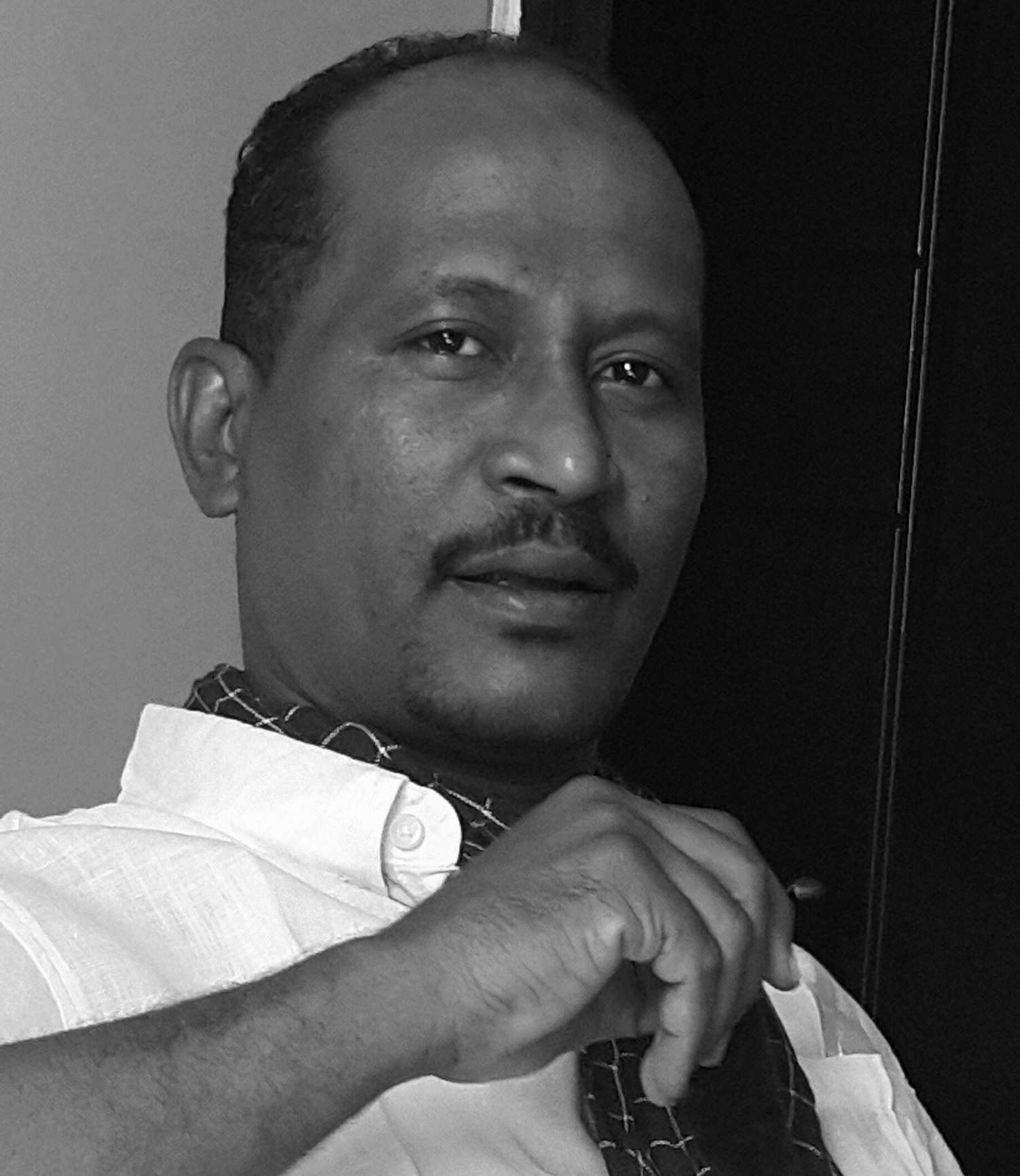
``And this torment is your beauty.``
Mohamed Abdel Majid
In the midst of my sorrows, I leap like a memorys flame in early winter or like a bird that has lost its way to its nest, appearing lost like my confusion. I try, with determination and anticipation, to weave from the pain a plate of ful, or a cup of tea, or a faint smile. I attempt to make the path wide enough for all of us. Some of our crises arise from only seeing ourselves. Some of our wounds find healing in more wounds.
I seem like a wanderer, a dervish of sorts, as in the performance of "Dervishs Melody":
In the presence of the one I love
Passions played with me
I stared without a face
And danced without legs
My banners and drums crowded
In the horizons
My love destroys my love
And my demise is engulfing
Enslaved, but I am the Sultan of lovers
We have excessively consumed these words, extravagantly planted them in secondary education to the point where we havent left any topic for composition untouched by these words. In the presence of the crescent, we are, similarly, staring without a face and dancing without legs. Its a unique state of passion that makes us unconsciously like this in that love.
After his great experiences, Mohammed Ahmed Mahjoub wrote, "As long as I confirmed, every time democracy faced a crisis, the best treatment for the ills of democracy is to give people more democracy and freedom." We need more; hasnt the blood stopped the military advocates? Hasnt it silenced them and made them feel shame?
One of the wandering comedy stars said he used to sleep during the math class, and it was because of his sleep that the math teacher would kick him out of class. He would then go to attend rehearsals of one of the plays in a theater near the school. He did this secretly, watching the rehearsals from behind the curtain without anyone noticing, and this clandestine watching of plays became the reason for his love of theater. It later became a reason for him to become one of the comedy stars. He is indebted to his teacher for being kicked out of class because without it, he wouldnt have become one of the comedy stars in India. I dont remember the actors name, but I remember the situation when he talked about it in one of his dubbed TV show dialogues.
Im trying to go beyond the text. If it werent for stepping out of the text, Adel Imam wouldnt have become the first comedy star in the Arab world.
Mekki Sanadah told us about his role in the play "Suhairs Engagement," where he played the role of Khalil, the drunk father. He excelled in it so much that someone came to the National Theater every day to ask Mekki Sanadah about the type of alcohol that made him that drunk. He used to say after the end of the play, "I want to know where this type is coming from." Sanadah was melting into the role to the extent that you could almost smell the alcohol on him!
We need to learn. When I tried to escape from my sorrows, a beautiful Hilali fan named Abbas Ali stopped me. He gave me a lesson I didnt intend to learn, but I learned a lot from it. This Hilali fan, Abbas Ali, made me feel ashamed and pushed me to open the doors to my sorrow. I welcomed it, and in this context, sorrow is dignified and literary, making you proud of it.
Abbas Ali told me that after the last match between Hilal and the Star, he returned home complaining of pain. His night was sad after Hilals draw with the Star, tossing and turning in his bed without finding the way to sleep, until the Vitore saved him from his insomnia when he stopped in his poem "The Sacred Dust" and remembered his words:
Yesterday, you came a stranger
And yesterday, you left a stranger
And here you are, wherever you are
Coming as a stranger
And leaving as a stranger
Gazing at you are the faces of smoke
Getting a little closer...
And distancing a little...
And lightning loves you
Freezing in the gaps of the mask are your hands
And the windmill asks about you
As if youve never been there
As if youve never been there...
The Vitores words are like nails penetrating the wall of silence, digging it deeper. In our small town, when we were children, we roamed barefoot in the corners of the nights. I remember that we used to light our lamp with the words of Mohammed Miftah Al-Vitore. Those words were igniting hope in our hearts. We waited for the goals of Wali Al-Din Mohammed Abdullah in the 9 PM news after warming up with the words of Al-Vitore. And the goals of Wali Al-Din were like a cocktail dinner at weddings or like a warm cloak in the cold.
And is there anything more beautiful than this gem:
A world possessed by those who dont possess it
Its rulers were the poor
The loser is the one who didnt take from it
What it gave him modestly
And the unaware is the one who thinks
These are the things...
We used to heal our wounds with these words, then hide our sorrows in our exhausted faces, tired from staying awake. It took us a long time to understand that things are not just things. Do you understand that now? Things are not just things.
Abbas Ali tells me that sleep didnt find its way to his eyes after Hilal and Najms draw until he reached the part where Al-Vitore says in his poem "The Sacred Dust":
"And now cover your head
This is the river you flirt with twice
And attack twice
And this torment is your beauty
Oh, what beauty!"
Again, how many years did it take me to reach this exquisite title, "And this torment is your beauty"? Al-Vitore summed up everything for us, and he made us welcome this torment. This torment is your beauty. I dont know who outshines the other, Al-Vitore or Abbas Ali? When he triumphed over the torment of Hilals draw with Najm and won with this beauty!!
I said I am searching for these victories, aiming for them because they matter to us in this race. Hilal takes us to this level of passion and mysticism. Always coming out of here with our heads held high, Abbas Ali knew how to overcome my sorrows, triumph over all the fractures, and then sleep with full eyes. Readers like these, how do we write for them? They need from us a special language, new letters, and a different dialogue. Hilal brings us together in that sanctuary.
If the Arabic language were not magical and an ocean, my pen would have run out of ink.
In the masterpiece "Our Story" by Osman Hussein, he says, "(My love, our story is still a love story stronger than reality)."
I dont know anything stronger than reality other than what Osman Hussein sang about. Bazra rebelled against reality and declared officially that the love story is stronger than reality, and thats it, the end of the conversation. I say this to emphasize the necessity of philosophy in dealing with things. Any essential person must have his own philosophy to survive this life with the least damage.
I read once about someone, after life became narrow for him, saying that death saved them from this life.
Its another philosophy that can be produced from the spoiled sauce (bee honey). When bees produce honey, they dont put a label on the production date or expiration date. Its honey! Companies do that to ensure a market for their new production.
Among the things I wrote in my (school) memoirs is that Mansour Bashirs (reversals) were a musical note. Prince Haitham Mustafas (passes) were magical, profound, and capable, like Moses staff carrying goals and changing the result. Muhannad Al-Tahirs (goals) in full colors were like a university acceptance application. Before that, Mohammed Hussein Kasla used to play soccer with a medical scalpel. He played it with a local anesthetic.
Tariq Ahmed Adam used to (analyze) any striker standing in front of him, regardless of his name, size, or football history. Malaria vaccination campaigns used to appear in Bishas goals, and the nights of Anas and Anas Al-Samar come in the goals of the sieve.
I remember a goal by Mutaz Kabir in Al-Merrikh; they said afterward that (the pit) was the reason for it. He responded casually with a header from the middle of the field, saying that (the fountain) caused it! And not to forget Salah Al-Dins goals, those that opened the doors of (distance education) in Sudanese universities.
We write while pain scatters its sorrows across the homeland, but our struggle still bets on a bright tomorrow and the Sudan we love. We also live with the country in the embrace of Al-Vitore and his expressions that triumphed over torment ("And this torment is your beauty"). And Osman Hussein, from Bazras lyrics in (After Patience), sings ("I dont know if my torment or your torment was more").
In this torment, your beauty!...
Barricades...
We must settle the bills of our love for this country.
We must rise.
And say no...
The final barrier: remains until settlement.


